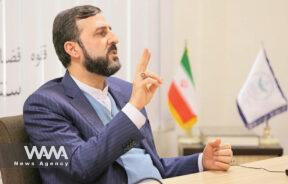Hypotheses on the Next Destabilization Attempts by the U.S. and Israel
WANA (Oct 08) – Following the destruction of Gaza, the martyrdom of Hamas leaders, and efforts to suppress resistance groups, Israel is now aiming to dismantle the political structures in Gaza. The goal is to merge Gaza with the Palestinian Authority, but this project requires eliminating and weakening the arms of resistance.
From Israel’s and its Western allies’ perspectives, this strategy is not purely military but a complex, multi-faceted hybrid war—psychological, political, economic, and ideological—representing a new approach from Netanyahu.
During the anniversary of the Al-Aqsa war, Netanyahu referred to the “Doomsday War,” an apocalyptic concept that replaces the “Iron Sword of Gaza” operation.
This belief is rooted in the ideology of certain influential Christian groups known as Evangelicals in the U.S., who believe in a final battle, “Armageddon,” opposing the ideals of Jerusalem and Palestine, with firm faith in the return of Christ.
Netanyahu’s year-long genocide, extending to Lebanon, though ideologically framed, fits within such a paradigm.
The following analysis explores hybrid warfare processes in targeted countries, focusing on Lebanon and Syria, and then gradually addressing Iraq and Iran.

The Storm that Shattered Israel’s Military Prestige
WANA (Oct 07) – On October 7, 2023, Hamas forces breached Israel’s highly touted “smart wall,” not only undermining Tel Aviv’s security doctrine but also casting doubt on the reliability of Israel’s military and security equipment for international buyers. Israel’s defence systems, particularly the Iron Dome, have long been regarded as some of the […]
1. Lebanon:
Lebanon is a multi-ethnic country with a fragile political structure. Political disputes, delays, and the stalled process of forming a government and electing a president have created serious challenges. Currently, Najib Mikati is merely a caretaker, as the parliament has failed to elect a new president since Michel Aoun’s term ended.
This instability weakens governance and exacerbates issues in other areas, such as Lebanon’s already fragile economy. The biggest threat, however, is the absence of a strong army and, more critically, the potential loss of Hezbollah’s leader, Sayyed Hassan Nasrallah, which could jeopardize Lebanon’s unity.
While Nasrallah had strong opponents like Samir Geagea, his role in defending Lebanon’s national interests earned him broad popularity across various groups.
His assassination would leave a vacuum with no replacement. Israel’s strategy in Lebanon likely involves bombing Hezbollah’s equipment and personnel, then exploiting the resulting insecurity to blame Hezbollah for Lebanon’s national instability.
This could lead to economic paralysis and potentially ignite a scenario similar to Lebanon’s 15-year civil war (1975-1990), all tied to the ideological framework of an Armageddon war.

Israeli Espionage Through Telegram
WANA (Oct 03) – Israel has elaborated on its intelligence capabilities and the extensive assassinations of high-ranking officials from the Islamic Revolutionary Guard Corps, Hezbollah in Lebanon, and Syria, all within a remarkably short period of less than 45 days. Israeli television reported that the “Paris Deal,” mentioned in the media regarding the arrest […]
2. Syria:
Although Syria doesn’t face the same political fractures as Lebanon, it is plagued by security threats, especially in northern provinces like Idlib, which remains under terrorist control.
Furthermore, Israeli strikes have targeted some Iranian bases, reducing their activity. In the southern provinces, particularly Daraa (the epicenter of the 2011 uprising), unrest is resurfacing.
Orchestrated protests could be fueled by economic dissatisfaction, paired with bombings of vital facilities such as Damascus and Aleppo airports, limiting connections with Iran.
Coupled with terrorist activity, this scenario aims to weaken Iran’s influence by recreating the turmoil of the last decade. However, such a scenario would likely require U.S. support.
3. Iraq:
While Iraq doesn’t face the same challenges as Lebanon and Syria, the U.S. military bases and control over Iraqi airspace pose security risks to Iran.
Targeting Iraq’s vital facilities, particularly missile bases of the Popular Mobilization Forces (PMF), could spark economic crises and divide the population, weakening Iraq as a key Iranian ally.
4. Iran:
Damaging the arms of the resistance could create vulnerabilities for Iran. Israel might justify attacks on Iran’s critical infrastructure, including energy facilities like oil resources, to hinder Iran’s oil exports.
Targeting power, water, and gas facilities in provinces such as Sistan, Kurdistan, and Khuzestan—regions with perceived ethnic tensions—would be a priority.
Such an attack would likely be impossible without U.S. support, but Israel would welcome any opportunity to challenge Iran’s economy by undermining its energy sector, hoping to spark unrest through economic collapse, leading to political and social turmoil.

Iran’s Decisive Response Plan to Potential Israeli Aggression Ready
WANA (Oct 06) – An informed source within Iran’s armed forces has announced that the country’s plan for responding to any potential actions by Israel is fully prepared, asserting that there will be no hesitation in executing a retaliatory operation should Israel take action. The source emphasized that Iran’s strategy includes various types of […]












